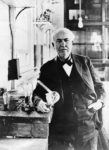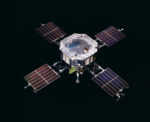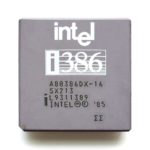Edison produces his first incandescent bulb, the transistor radio makes its debut and the first all-female spacewalk takes place… It all happened This Week in Tech History.
This week in 1879 – After 14 months of experimenting in Menlo Park, NJ, Thomas Edison succeeded in producing a working prototype of the electric, incandescent lamp, using a filament of carbonized thread. It lasted for thirteen and a half hours before burning out.
1919 – The Radio Corporation of America (RCA) was formed. The company became a giant in electronics, especially radios and TVs. It would later own its own TV network (NBC) and other broadcast interests.
1954 – Texas Instruments announced the first Transistor radio. They quickly became one of the most popular electronic communication devices in history, with billions manufactured during the 60s and 70s.
1967 – Mariner 5 did a fly-by of Venus and sent back data indicating that the planet had no magnetic field and that its surface was unfit for human habitation.
1985 – Intel introduced the 32-bit 80386 microcomputer chip. It was the first Intel *86 chip to handle 32-bit data sets. It ran at speeds of up to 33 MHz — blazingly fast in 1985.

And this week in 2019 – NASA Astronauts Jessica Meir and Christina Koch took part in the first all-woman spacewalk when they ventured out of the International Space Station to replace a power controller.






